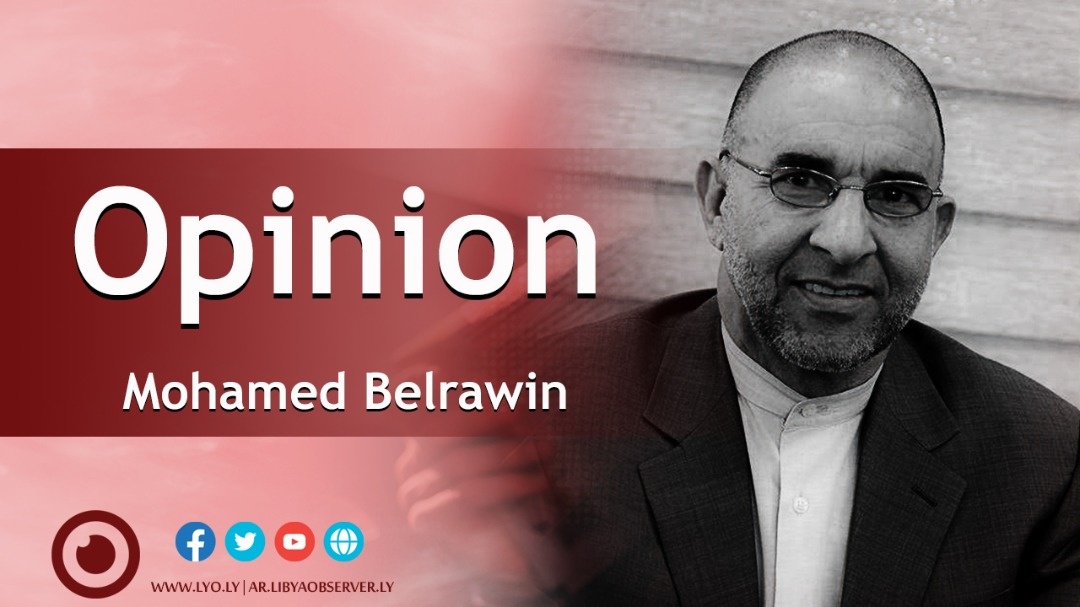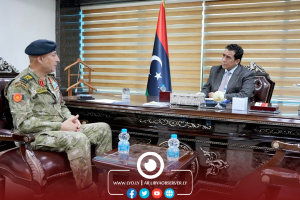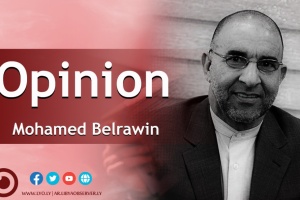By Mohamed Belrawin, Professor of Political Science and member of the Constituent Assembly for Drafting the Constitution
Libyans and the unfinished revolution

Revolution is a process of radical, fundamental and comprehensive change in the way a country is governed to replace its social, economic and political policies with what is fairer and more useful, and to seek to build a new system of governance based on human dignity, right to choose and rule of law.
Revolution here does not mean "war", because wars occur between enemies, and when people revolt, they do not consider their opponents as enemies, but mere unjust, corrupt and failed politicians in the management of the state, and therefore forcing the people to overthrow them, repair what has been spoiled and build more just, free and advanced institutions.
Elements of success of revolutions
For any revolution to succeed, it must go through two complementary stages – the first stage, which is the stage of demolition, i.e. the overthrow of the regime, and the second stage, which is the stage of rebuilding an alternative system to it, thus completing the revolution and achieving its goals for which it was established.
In fact, every student of history of successful revolutions would note that there are important and necessary elements that contributed to their success, perhaps the most important of which are: unified leadership, effective vanguard, and clear programmes.
First: Leadership
Successful revolutions have been led by people and groups filled with hope and dream of a better society. Therefore, a unified revolutionary leadership is necessary to guide the masses and the management of the revolutionaries towards the desired goal. For example, George Washington was the founding father of the United States and commander of the Continental Army for Independence (1775–1783), Lenin was the leader of the Bolshevik Revolution of 1917, Mao Zedong was the leader of the Chinese Revolution of 1949, the Algerian National Liberation Front was a symbol of collective leadership and leader of the War of Liberation against the French (1954-1962), Ayatollah Khomeini was the leader of the Iranian Revolution of 1979, and Nelson Mandela was a symbol of the South African Revolution (1989-1997). All these (and others) were among the most important reasons and key to the success of these revolutions.
Second: Vanguard
In addition to having a unified leadership, for any revolution to succeed, there must be real revolutionaries who believe in its goals and slogans. A revolutionary is a field person who is involved in the making of the revolution. In other words, revolutionaries are the cadres (i.e. makers) of the revolution, executors of the orders and instructions of the unified leadership, and they are what we can call the active revolutionary vanguard. What is meant by the vanguard here is an organized and trained group that works at the forefront of the masses of people to protect the revolution, achieve its goals, and create the popular support it needs, in other words, it is the field guard and advanced one for the revolution and the first on the battlefield to achieve its goals.
Third: Programmes
For any revolution to succeed – in addition to having a unified leadership and an effective revolutionary vanguard – its objectives must be defined and agreed upon with all active revolutionary forces, otherwise it will not be completed even if it succeeds in its first stage – the demolition phase, because it will fail in its second stage – the reconstruction phase, because those who created it did not agree in advance on its final goals.
For example, the socialist revolutions succeeded in Russia in 1917 and in China in 1949, because their leaders agreed that the idea of social revolution was necessary to bring about structural changes in society, the leaders of the Iranian Revolution led by Ayatollah Khomeini in 1979 agreed on the idea of establishing an Islamic republic under the leadership of velayat-e faqih, and the South African revolutionaries led by Nelson Mandela agreed on the idea of achieving national reconciliation, ending the era of apartheid in the country, and establishing a just republican system governed by all.
An unfinished revolution
From what has been stated above, it can be concluded that the revolution of February 17, 2011 is an incomplete revolution, in the sense of a revolution that did not achieve its desired final goals, in other words, an incomplete revolution and lacks important and necessary elements for its success and completion, and here one may ask: Why did the revolution fail to achieve its goals? In fact, the main reasons that led to its incompleteness and inability to achieve its goals are: (1) the absence of a unified (individual or collective) leadership, (2) the absence of clear national programmes for the reconstruction of the state and the reconstruction of the homeland, and (3) the absence of an effective and unified revolutionary vanguard to implement agreed national programmes and be willing to sacrifice for them.
Path correction
Perhaps I am not exaggerating if I say that most of the wise Libyans agree that the revolution of February 17, 2011 has succeeded in its first stage - that is, the stage of overthrowing the regime, but it failed in its second stage - that is, the stage of rebuilding the state and achieving peace, security and safety for the citizen, and as a result of this failure, groups of opportunists controlled state key positions, and worse still, they are undemocratic, unqualified, and do not read, and if they read they do not understand, and as a result of their actions, state institutions collapsed and citizens became living in hardship, and the endless spiral of democratic absurdity.
In my humble opinion, Libya will not emerge from this dark tunnel unless the national elites, with all their orientations and affiliations, seek to agree on a "minimum programme" to correct the course of the revolution in simple, peaceful and civilized ways, and to work to rebuild the state and save the homeland as soon as possible.
The elites must realize that what the people need today is the formulation of a new social contract that organizes their lives and achieves the right to choose and live in dignity, the rule of law and the peaceful rotation of power. In other words, the formulation of a social contract that eliminates corruption and corrupt people, and achieves security, safety and a decent living, thus getting rid of those who stole their revolution, pounced on it, changed its course, and tampered with its wealth and sanctities.
In order to correct the course of the revolution and restructure the political, military and security institutions in the state, it is necessary to redress the damage and recognize the mistakes made in the past years and work to fix them by: (1) creating a unified national leadership. (2) Agree on minimum programmes – simple, clear and specific. and (3) reconstituting national administrative, military, and security vanguards – provided that they are competent, capable, and ready, and that their loyalty is to Allah and then to the homeland.
If the good people do not cooperate to achieve these three necessary elements to reform the course of the revolution, inevitably chaos, absurdity, corruption and injustice will continue, and the term "State of Libya" will turn into just a slogan that has no sovereign meaning, used by bankrupts, opportunists and international powers to legitimize their existence and influence, and the "Libyan land" will turn into arenas of conflict, areas of influence, and centers of power - some regional, some ethnic, some tribal, and others family -, and the only loser in this immoral and dirty conflict is the simple, deprived and oppressed citizen in these arenas, regions, and centers.
Is it not time for the national elites to become aware of this danger, and seek to "reunite" and speed up agreement on a "minimum programme" to save what is left of the homeland that was founded by fathers and grandfathers and sacrificed for it with all most dear and precious? Is it not time for these elites to realize that they have no choice but to resort to dialogue between all parties and to give priority to the interest of the homeland and resort to the judgement of the people, and that their slogan should be: "Libya first".
In the end, the question remains: Can these elites do this as quickly as possible, before it is too late? ... I pray to Almighty, that this will be achieved!
Finally, my beloved people, do not forget that this is just an opinion, I believe it is right.
Disclaimer: The views and opinions expressed in this article are those of the writer, and do not necessarily reflect those of the Libya Observer



